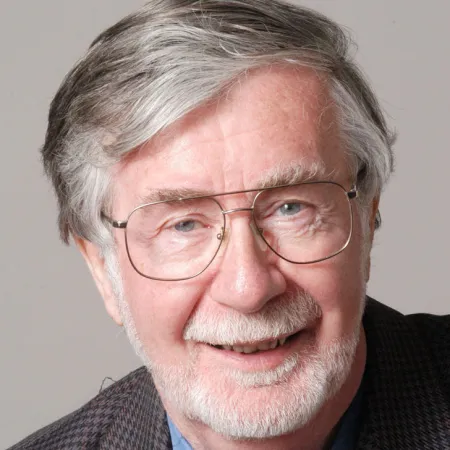Building Evidence-Based Policies
The Sahel—the semi-arid zone stretching across sub-Saharan Africa from the Atlantic to the Red Sea—will see population growth by more than 250% by 2050. Child marriage and female genital cutting are widespread. Climatologists predict that this already hot area will become even hotter, greatly reducing crop yields. Around mid-century, more people than live in the USA could become ecological refugees.
These somber figures are based on robust data, yet not one domestic government or international aid agency is responding on a scale, or with an urgency, commensurate with the threats overshadowing the Sahel. This presentation will discuss these issues and explore how data can be collected and disseminated to build the policies needed to prevent an unprecedented humanitarian disaster.
Presenters

Malcolm Potts
Dr. Malcolm Potts is a Cambridge-trained obstetrician and reproductive scientist. He is a professor in Maternal and Child Health and the first and former (1992–2013) holder of the Fred H. Bixby Endowed Chair in Population and Family Planning in the School of Public Health, and developed the Bixby Center with a team of young experts. For over a decade while he was the first Medical Director of the International Planned Parenthood Federation, he introduced family planning methods into scores of developing countries. As CEO of Family Health International (FHI), he launched the first large scale...

Malcolm Potts
Dr. Malcolm Potts is a Cambridge-trained obstetrician and reproductive scientist. He is a professor in Maternal and Child Health and the first and former (1992–2013) holder of the Fred H. Bixby Endowed Chair in Population and Family Planning in the School of Public Health, and developed the Bixby Center with a team of young experts. For over a decade while he was the first Medical Director of the International Planned Parenthood Federation, he introduced family planning methods into scores of developing countries. As CEO of Family Health International (FHI), he launched the first large scale studies of maternal mortality, which helped start the worldwide Safe Motherhood Initiative. He has published over ten books and 300 scientific papers. His current efforts focus on the OASIS (Organizing to Advance Solutions in the Sahel) Initiative, a global multidisciplinary partnership working on solutions to the increasingly complex problems in global health and development in the Sahel.